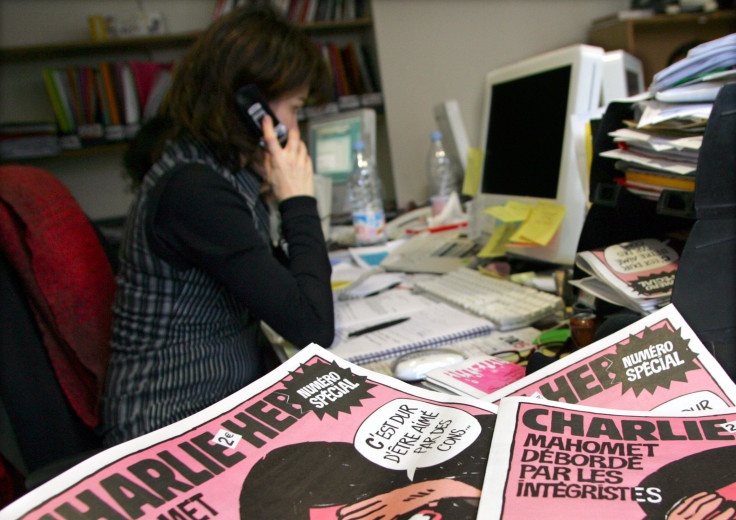Charlie Hebdo Editorial Roundup: FT, USA Today And Others Criticize Magazine's Satire
Some outlets walked back their coverage, while others stood firm

In the aftermath of the horrific murders at Charlie Hebdo in Paris Wednesday, many pixels have been created -- and pots of ink emptied -- in defense of free speech and in condemnation of extremism. In town squares across the world, stirring displays of solidarity and support have massed and grown.
Yet a number of publications took a different tack, with editorials suggesting that the editors of the French satirical magazine displayed a recklessness that played some role in the tragedy.
Those opinions have been roundly criticized, though the papers' response to those backlashes has been varied. The Financial Times’ Europe editor, Tony Barber, walked back the rhetoric he used in a column first posted online. On Wednesday, Barber described Charlie Hebdo as “not the most convincing champion of the principle of free speech,” with a tendency toward “editorial foolishness” :
Charlie Hebdo has a long record of mocking, baiting and needling French Muslims. If the magazine stops just short of outright insults, it is nevertheless not the most convincing champion of the principle of freedom of speech. France is the land of Voltaire, but too often editorial foolishness has prevailed at Charlie Hebdo.
This is not in the slightest to condone the murderers, who must be caught and punished, or to suggest that freedom of expression should not extend to satirical portrayals of religion. It is merely to say that some common sense would be useful at publications such as Charlie Hebdo, and Denmark’s Jyllands-Posten, which purport to strike a blow for freedom when they provoke Muslims, but are actually just being stupid.
On Thursday, this is how that same passage reads, in what is described as an “expanded and updated” version:
Charlie Hebdo is a bastion of the French tradition of hard-hitting satire. It has a long record of mocking, baiting and needling Muslims. Two years ago the magazine published a 65-page strip cartoon book portraying the Prophet’s life. And this week it gave special coverage to Soumission (“Submission”), a new novel by Michel Houellebecq, the idiosyncratic author, which depicts France in the grip of an Islamic regime led by a Muslim president.
This is not in the slightest to condone the murderers, who must be caught and punished, or to suggest that freedom of expression should not extend to satirical portrayals of religion. It is merely to say that some common sense would be useful at publications such as Charlie Hebdo, and Denmark’s Jyllands-Posten, which purport to strike a blow for freedom when they provoke Muslims.
A spokesperson for the FT, Darcy Keller, described the changes as being part of the editorial process. She declined to comment on why the nature of the updates was not explained or elaborated upon.
On the other side of the Atlantic, USA Today published an opposing view editorial by Anjem Choudary, whom the paper described as a “radical cleric and lecturer in shariah law.”
Muslims consider the honor of the Prophet Muhammad to be dearer to them than that of their parents or even themselves. To defend it is considered to be an obligation upon them. The strict punishment if found guilty of this crime under shariah is capital punishment implementable by an Islamic State. This is because the Messenger Muhammad said, "Whoever insults a Prophet kill him."
The editorial -- or, rather, the decision to publish it -- received so much criticism on social media that the Washington Post felt compelled to commend the paper’s decision. USA Today has not removed or changed Choudary’s words.
In Egypt, the newspaper Shorouk News published an editorial enumerating the instances in which the French magazine had depicted the Prophet Muhammad in its pages. It one of the only papers in the Arabic-speaking world to do so.
An earlier version of this story erroneously referred to Mr. Barber's piece as a signed editorial.
© Copyright IBTimes 2024. All rights reserved.











